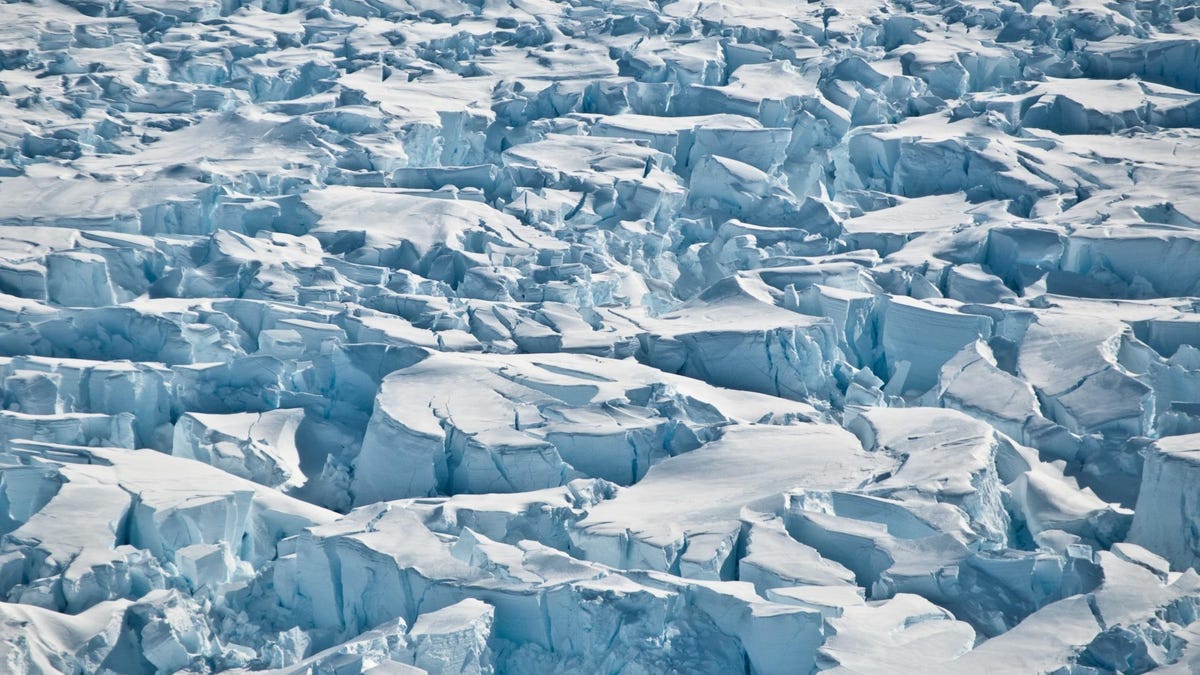Epic Antarctic ice sheet melt speeding up sea level rise
NASA eyes rapidly growing ice losses from the Antarctic.
The high seas are getting even higher, and all that water is largely coming from a colossal Antarctic ice melt that has gotten much worse in recent years.
A new climate assessment called the Ice Sheet Mass Balance Inter-comparison Exercise (IMBIE) found a startling rise in sea level. NASA says ice losses from Antarctica have tripled since 2012, raising sea levels by 0.12 inch (3 millimeters), a faster rise than we've seen at any time in the past 25 years.
The researchers pulled their data from sources including satellite observations and computer modeling. They found the Antarctic ice loss raised global sea levels by 0.3 inches (7.6 millimeters) between 1992 and 2017, with the most extreme changes found in recent years.
This chart show Antarctic ice sheet's contribution to sea level rise over time.
While West Antarctica is melting away, the East Antarctica ice sheet isn't growing enough to offset ice loss from the rest of the continent.
Much of the melt-off is coming from the Pine Island and Thwaites Glaciers, victims of climate change. "Scientists think that the [Pine Island] glacier is shrinking because the ocean water that flows under the glacier is warming, increasing melt at the base," says NASA.
An international team of researchers, including scientists from NASA and ESA (European Space Agency), published their findings in the journal Nature Wednesday.
Rising sea levels can have a dangerous impact on coastal habitats and communities as flooding increases along with higher tides and stronger storm surges.
"This has to be a concern for the governments we trust to protect our coastal cities and communities," says Andrew Shepherd from the University of Leeds, one of the study leads.
The unsettling trend is expected to continue.
"Global sea level has risen by about 8 inches since reliable record keeping began in 1880. It is projected to rise another 1 to 4 feet by 2100," says NASA's global climate change website.


